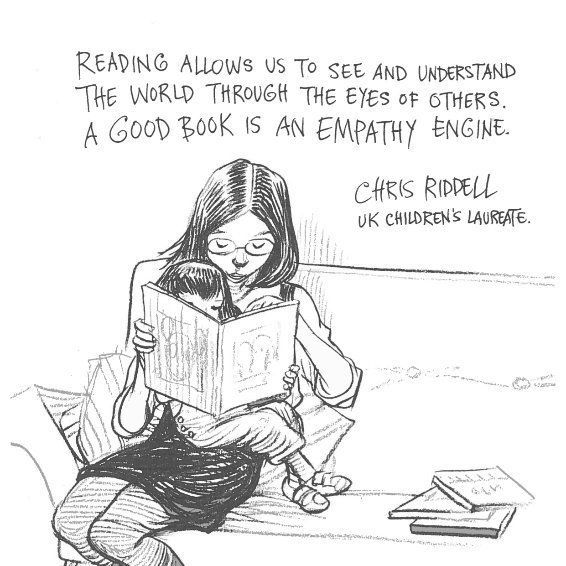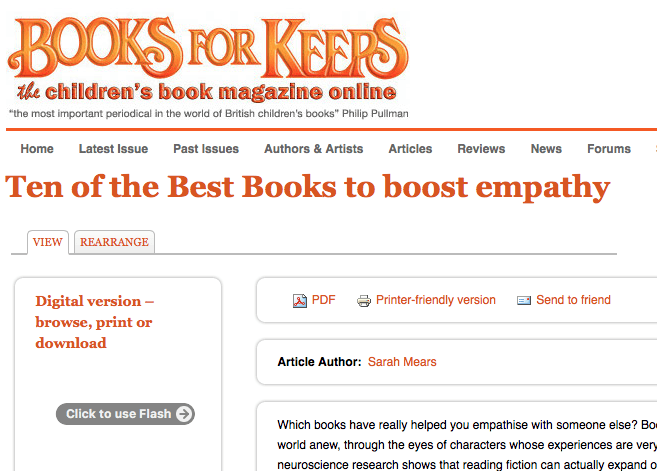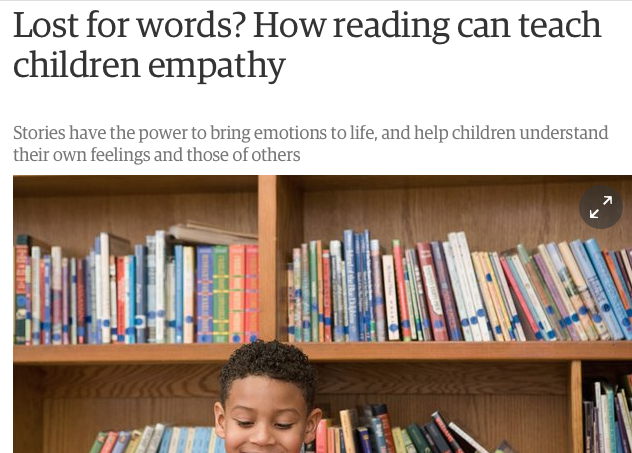Empathy and Stories
This is one of our favourite videos. It explains the difference between empathy and sympathy
What is empathy?
We believe empathy is a core life skill, and a revolutionary force for social change as we put it into action.
Neuroscientists, psychologists and philosophers are changing our understanding of how empathy works all the time. Most agree that:
- empathy involves multiple aspects of our physiology – from mirror neurons to our endocrine system
- empathy is made up of three main elements: emotional/affective empathy where we literally resonate with someone else’s feelings; cognitive empathy or perspective taking where we apply reason to working out how someone else feels; empathic concern which is a powerful motivator for helping others, a force for social justice.
Empathy and Stories
'In reading, you get to feel things, visit places and worlds you would never otherwise know. You learn that everyone else out there is a me, as well. Empathy is a tool for building people into groups, for allowing us to function as more than self-obsessed individuals'
Neil Gaiman
98% of us can train our plastic brains to become more empathetic. We’re excited by new neuroscience research showing that reading fiction is a powerful tool.
As we read, our brains are tricked into thinking we’re genuinely part of the story and the empathetic emotions we feel for characters wires our brains to have the same sort of sensitivity towards real people.

The empathy-building power of reading beautifully illustrated for us by Children's Laureate, 2015 - 2017, Chris Riddell.
A New York research team found that literary fiction readers are consistently better at identifying facial emotions than readers of popular fiction. They think this is because the complexity of characters mirrors and strengthens our process of trying to make sense of other people.
So far, worldwide, there are no empathy education strategies that systematically exploit the power of stories and contact with authors to build empathy. That’s the area EmpathyLab focuses on.



